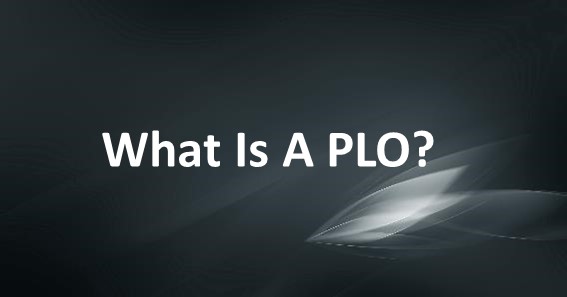Are you curious to know what is a PLO? You have come to the right place as I am going to tell you everything about a PLO in a very simple explanation. Without further discussion let’s begin to know what is a PLO?
In the complex landscape of the Israeli-Palestinian conflict, the Palestinian Liberation Organization (PLO) has played a significant role in representing the aspirations and interests of the Palestinian people. Established in 1964, the PLO has evolved over the years to become a central body advocating for Palestinian self-determination, statehood, and the resolution of the Israeli-Palestinian conflict. In this blog, we will delve into the history, goals, structure, and key developments of the PLO, shedding light on its significance in the pursuit of Palestinian rights.
What Is A PLO?
The PLO emerged during a time of heightened tensions and political mobilization among Palestinians following the 1948 Arab-Israeli war and the subsequent establishment of the State of Israel. Founded in 1964 under the leadership of Palestinian nationalist figures, including Ahmed Shukeiri, the PLO aimed to consolidate Palestinian political representation and coordinate efforts against Israeli occupation.
Objectives And Goals
The primary objective of the PLO has been the realization of Palestinian self-determination, the establishment of an independent Palestinian state, and the return of Palestinian refugees to their homeland. Throughout its history, the PLO has pursued these goals through various means, including diPLOmatic efforts, armed resistance, and negotiations with Israel.
Organizational Structure
The PLO is composed of several components, each representing different political factions and interests. The Palestine National Council (PNC) is the highest decision-making body within the PLO, serving as the parliament-in-exile for Palestinians. The PNC is composed of representatives from various political parties, organizations, and Palestinian communities around the world.
The Executive Committee, elected by the PNC, serves as the executive body of the PLO and is responsible for implementing its policies and decisions. The Executive Committee is headed by a chairman, commonly known as the Chairman of the PLO, who is also the President of the State of Palestine.
Key Developments And Accords
The PLO has been involved in numerous key developments and negotiations aimed at resolving the Israeli-Palestinian conflict. In 1988, under the leadership of Yasser Arafat, the PLO officially recognized Israel’s right to exist and endorsed a two-state solution, marking a significant shift in its approach.
The Oslo Accords, signed in 1993 between the PLO and Israel, led to the establishment of the Palestinian Authority (PA) and granted limited self-governance to Palestinians in certain areas of the occupied territories. The PLO, through its negotiations and diPLOmatic efforts, sought to advance the goal of Palestinian statehood and the resolution of the conflict.
Challenges And Future Outlook
The PLO has faced numerous challenges throughout its existence, including internal divisions, external pressures, and setbacks in achieving its goals. The organization has grappled with issues of representation, unity among Palestinian factions, and balancing diPLOmatic efforts with resistance against Israeli occupation.
The future of the PLO and its role in the Israeli-Palestinian conflict remains a subject of ongoing debate and speculation. As new generations of Palestinians come of age and global dynamics evolve, the PLO continues to adapt and navigate the complexities of the conflict, striving to ensure the rights and aspirations of the Palestinian people are represented and protected.
Conclusion
The Palestinian Liberation Organization (PLO) has been a central actor in the struggle for Palestinian self-determination, statehood, and the resolution of the Israeli-Palestinian conflict. Through diPLOmatic efforts, armed resistance, and negotiations, the PLO has sought to advance the rights and aspirations of the Palestinian people. While facing numerous challenges and setbacks, the PLO remains an important entity in the quest for a just and lasting solution to the Israeli-Palestinian conflict, as it continues to advocate for Palestinian rights on the international stage.
To know more about such interesting things explore queryplex
FAQ
What Is PLO?
A PLO (Public law outline meeting) or PPM (Pre-Proceedings Meeting) is a meeting called by the Local Authority when they have concerns surrounding your care of your child/children. The meeting is an opportunity for the Local Authority to make you aware of the concerns they have about your child/children.
How Serious Is A PLO?
PLO meetings are very serious and should not be regarded as something to take lightly, it’s an opportunity for the parent to prove to the LA that they will make the required changes. The letter states that the parent should contact a solicitor and encourages them to have one present at the meeting
What Is A PLO Assessment?
Program learning outcomes (PLO) assessment is an iterative process of evaluating the extent to which students have developed certain key skills through coursework and learning activities within the program curriculum.
What To Expect From A PLO?
What will happen at my PLO meeting? PLO meetings usually begin with the social worker talking through their concerns about the welfare of your child. They’ll then talk you through what they think is needed to improve things in your home or lifestyle.
I Have Covered All The Following Queries And Topics In The Above Article
What Is A Wrap In PLO
New Jersey V PLO Is A Case About What?
What Is A Manhattan PLO
What Is A PLO R/A Card Game
What Is A PLO Kit
What Is A PLO In Rx
What Is A Topical PLO
What Is A PLO
What does PLO stand for in social work
What is PLO
